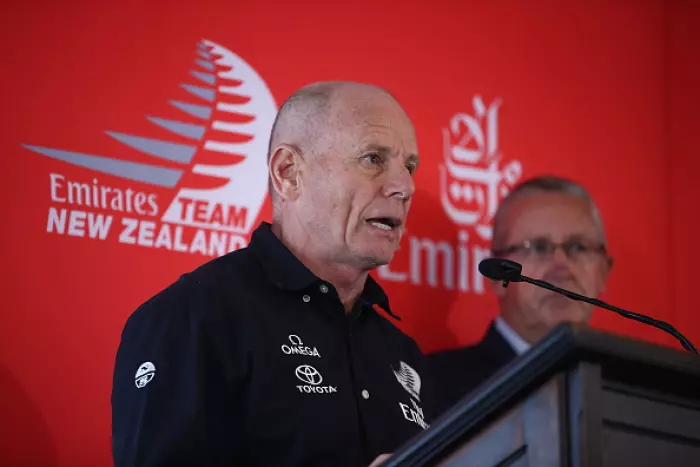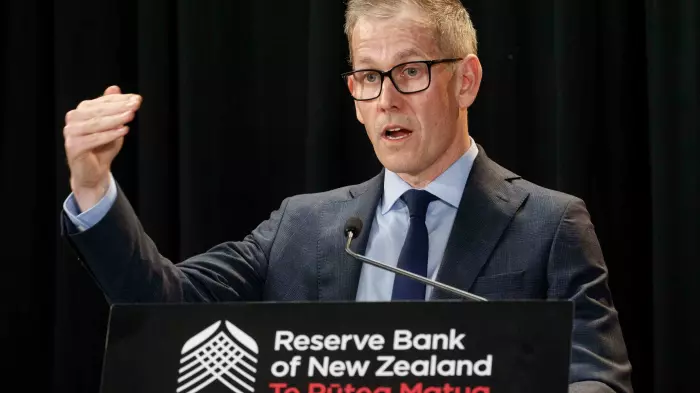So the decision has now been made – but by whom? – and, as expected, the venue for the next AC Defence in 2024 [AC37] is “anywhere but Auckland”, in fact, Barcelona.
A relief, I suppose, that it’s not Jeddah and New Zealand supporters of Team NZ (assuming that there will be some left after the announcement) will be spared the problem of having to avoid the regular public beheadings – 81 on a single day recently, proclaimed as a “new record”.
Team NZ and the Royal NZ Yacht Squadron (RNZYS) cannot however claim any virtue in not choosing Jeddah. They courted the Saudis and allowed the NZ name and flag to be eligible for the hosting of the defence there.
The process of rationalisation of a decision that even Grant Dalton must have known would not win him any friends, and indeed might cause him to lose those that he does have, began soon after the last defence but, fanned by the few journalists that Team NZ has in its pocket and who are willing to act as Dalton’s scribe, is now off and spinning.
I set out below the claims as to why Auckland could not host AC37 (the fiction) and respond with the facts.
The 'no local money' excuse
Dalton has consistently made three claims in respect of this assertion:
- $200 million is required, $120m for the team and $80m to stage the event;
- that figure does not change wherever AC37 takes place;
- the challengers have joined forces with Formula One motor racing teams and will therefore have technological expertise that Team NZ cannot match.
The starting point for an assessment of those claims is Dalton himself.
When announcing the protocol which provides the rules for AC37, he said that a new entrant (with no previous cup experience or assets) with a budget of $80m would have the capacity to win the cup.
Team NZ is hardly a new entrant, to state the obvious.
Its assets comprise long-established design and sailing teams and the winning boat from the last event.
It chose the foiling monohull concept and its first-mover costs have been expended and it can move on to further design and construction development while others play catch-up and incur costs that for Team NZ are now sunk.
The claim that event costs in Auckland would be $80m and that figure is no different for a new host city doesn’t make obvious sense, given the fact that, courtesy of the Auckland Council and the NZ government from last time, the facilities are all there.
It has been claimed that Barcelona has no need to build new port facilities, unlike both Malaga and Cork who were two others on the shortlist.
Nothing has been said as to the cost of providing the land for team bases but however, it is spun the Barcelona deal does not appear to be worth anywhere near the $200m Dalton said was needed for an Auckland defence.
It also discredits his claim of a $50m “gap” between that figure and what was on offer from the NZ government ($31m cash and $68min kind, which consistently gets ignored by Dalton), Mark Dunphy ($40m) and Team NZ’s commercial sponsors ($80m: Emirates, Toyota, Omega, etc.).
The Barcelona deal is said to be €70m (NZ$111.5m) to run the event and fund Team NZ.
So, on the face of it, the combined NZ government/council/Dunphy/Emirates et al. deal looks to be actually superior to what is on offer from Barcelona.
If not a money problem, then what?
So if money is not the key differential, what is?
The answer may lie in the doubts that were raised last time as to whether some of the public money that had been allocated to cover the costs of the event was being taken by Team NZ to fund its own needs.
Following a complaint by whistleblowers who had been contracted by Team NZ’s related company America’s Cup Events (ACE) to assist in running the event, the government through the Ministry of Business, Innovation and Employment (MBIE) commissioned an audit by Beattie Varley, which found accounting and management standards to be somewhat below an acceptable standard.
It could be predicted therefore that next time around Dalton – who was both CEO of ACE and MD of Team NZ, a fact commented on adversely by informed financial media – would not have the same control over expenditure from those providing public money.
Fiction: (1) $200m was needed to fund the event and the team, no matter where it was held; (2) the money, whether $200m or somewhat less, was not available in NZ.
There is also the fact pointed out by the "Secret Sailor” (NZ Herald 1 April 2022), a long-time America’s Cup participant, that as the defender “this is Dalton’s game.
He designed the class rule, decided on the protocol [and] holds the commercial rights to everything”.
He determined the operating cost, the Secret Sailor continues: “it’s his game. He has done it [and] so for Team NZ to say it’s all too expensive and we’ve got to go offshore is no excuse”.
His conclusion is unarguable: “Loyalty, parochialism, patriotism, all that stuff Dalton has rammed down everyone’s throats over the past 10 years, is all bullshit.”
The 2003 loss was due to underfunding claim
Nope.
A myth created and oft-repeated by Dalton to justify taking AC37 off-shore.
Team NZ was well-funded in 2003 but: its designers were obsessed with its design innovation of the “hula” which was later shown to be sub-optimal; following the departure of its stars to Alinghi in 2000 after a dispute as to their future role in Team NZ following the departure of Peter Blake, the new crew (who incidentally were mostly recruited from my Georgia Racing team), though incredibly talented were less experienced.
The stated preference for AC37 2024 in Auckland
This was a claim made by Dalton when addressing two meetings of members of the RNZYS following the successful defence in March last year.
At the first of those meetings, he said in relation to private NZ money: “My phone hasn’t exactly been ringing off its hook”.
That doesn’t sound like someone who is actually going out and looking.
On other occasions, he has claimed that he has endeavoured to raise private money locally but has been completely unsuccessful.
That claim, and the assertion of a preference for Auckland, doesn’t sound credible when it is measured against the fact that many months before the last, Defence Origin Sports Group, an English consulting agency, had been commissioned by Team NZ to obtain host city bids from around the world and had issued a detailed 46-page brochure or prospectus which led to a chosen shortlist initially of Jeddah, Cork and Valencia but later expanded to include Malaga and Barcelona.
That prospectus stated as a key objective “delivering economic impact, social impact, media value and legacy to host venues” – all benefits now lost to Auckland of course.
One particular feature of what was being proposed needs noting.
At the first RNZYS members’ meeting addressed by Dalton last year, he was asked whether AC38 would take place in Auckland if the Defence of AC37 offshore was successful.
His answer was: “I honestly don’t know”.
Prior to that meeting, a “Further Information for Shortlisted Host Venues” was issued on 6 April by Team NZ/Origin, setting out a timeline leading to the AC37 Event, following which for the successful AC37 bidder: “Planning and discussion around AC38 Host Venue – first right to negotiation (3 months).”
A reasonable conclusion that can be drawn is that win or lose, the America’s Cup has now left NZ forever.
The only chance of that not being the case is if the leadership of the RNZYS were in the meantime to discover that under the Deed of Gift, which establishes the rules of trusteeship relating to the cup, it is the RNZYS and not Team NZ that holds the cup and under which, as trustee, it is not able to delegate key decisions (including venue) to Team NZ.
The "inevitable loss in Auckland" argument
This oft-asserted Dalton claim takes us back to the money and also to the bogey of partnerships having been formed between each of the challengers and Formula One Grand Prix teams (INEOS with Mercedes; Alinghi with Red Bull and Luna Rossa, presumptively, with Ferrari). The Americans, it seems, are similarly disadvantaged as Team NZ.
Given the strong association between McLaren and NZ, one wonders why Team NZ has not already done a deal with them?
With budget caps on Formula One team expenditure, it would seem that there is enthusiasm for those teams to undertake other activities such as the America’s Cup that might be a source of expertise development.
One feature of taking the cup away from Auckland that Dalton apologists struggle to deal with is the fact of home advantage.
Comparisons are rightly drawn between the All Blacks playing England in a World Cup final at Eden Park and playing them at Twickenham. It has been said that knowledge of home waters is not really an advantage because the challengers last time based themselves in Auckland up to 2 years before the Event.
That didn’t, however, stop Peter Burling from correctly picking wind shifts in the final.
But the really big home advantage is the inspiration that massive local support gives a home team to lift their game.
That is what Team NZ has willingly given up.
The Secret Sailor makes the point: “By going offshore to Barcelona, [Dalton] is setting Team NZ up to fail – and I think he sees this as the last campaign for him”. (Others have made similar comments.)
“Team NZ would always have had a better chance of defending on home waters – it’s a no-brainer”.
Long-time America’s Cup participant and former Vice Commodore of the Golden Gate Yacht Club Tom Ehman, when Larry Ellison of Oracle took the Cup to Bermuda only to lose it, has consistently expressed the view that Team NZ will be more likely to lose the Cup away from Auckland than in Auckland, money or no money.
“Team NZ owes nothing to anybody”: Richard Gladwell, Sail World
Really!!!
“Team New Zealand”.
No longer.
It has been said on its behalf recently, in response to the All Blacks analogy, that it is not a national team representing New Zealand but is a private company.
A private company sure (though one that is said to be a charitable trust with the object of advancing the interests of yachting) – but funded hugely by public funds, half a billion dollars over the years.
And if that is how it sees itself now, just remove “New Zealand” from its name.
This blog post was first published here and is republished with permission from Jim Farmer.










